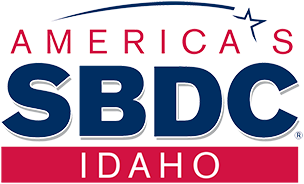 Signing a lease on a commercial space is often the first of many mine fields an entrepreneur must cross when opening a small business. Leases are full of legal jargon and contain tons of “small print” that can haunt an unsuspecting lessee for years. Now, before I go another step in my discussion, let me be clear on one point; never sign any lease or other contract without first consulting your attorney. Remember, leases are written in favor of the building owner, not the renter, so get professional help.
Signing a lease on a commercial space is often the first of many mine fields an entrepreneur must cross when opening a small business. Leases are full of legal jargon and contain tons of “small print” that can haunt an unsuspecting lessee for years. Now, before I go another step in my discussion, let me be clear on one point; never sign any lease or other contract without first consulting your attorney. Remember, leases are written in favor of the building owner, not the renter, so get professional help.
So, what should you watch for? The first thing to understand is how important having a formal lease is for everyone. It defines the responsibilities and provides protection for both parties. This way there is no confusion when things come up in the future. Don’t get involved with a landlord that just wants to “shake hands on it”. In business, everything should be in writing. Take a look at the leasing terms. How long is the lease? Is it renewable? How much per month? Will the initial payment be the first month, last month, and a damage deposit? What is required to get your deposit back? Will the rent automatically increase next year? When are the payments due each month and is there a late fee? Who pays for the property taxes, insurance, and utilities? Are there limits to what business activities you can conduct in the building? Can the lease be assigned or subleased to another party?
Improvements and maintenance of the premises are also important considerations to pin down in a lease. Can the space or existing fixtures be modified to suit the needs of the renter? Be careful here. Often a lease will include terms that require the tenant to put the building back to its original condition when the lease is over. So if you knock down that wall, you may need to rebuild it before you move out. Who will pay for upgrades, additions, paint, or carpeting? Who is responsible if the water heater fails or the roof begins to leak? Is the space set up to accommodate people who are disabled in accordance to the Americans with Disabilities Act (ADA)? Two other leasing terms to be aware of involve how disputes will be handled and how the lease can be terminated by the parties. Will mediation be required in a dispute? Will you be able to defend your case in Idaho or will you be forced to go to court in the state where the landlord resides? Under what circumstances can the lease be terminated? Will there be penalties and how much notice is required?
If you are a new business, please use caution when it comes to the term of the lease. We cringe when we think about a brand new business signing a ten year lease when the odds of failing are so high. Remember, if you don’t succeed in business you are still liable to pay the ten year lease. At the same time, we hate to see a business lease a space on a month to month basis. This affords you no location security at all. A month to month lease means you are potentially only thirty days away from a forced move which can be fatal to a new business. We recommend a one year lease with an option for a second year. Keep in mind, everything in business is negotiable. Just because a landlord presents you with their standard lease doesn’t mean you can’t negotiate the individual terms. But if you don’t ask, you won’t get.
How to Evaluate a Commercial Lease

Our Host Universities & Affiliates




